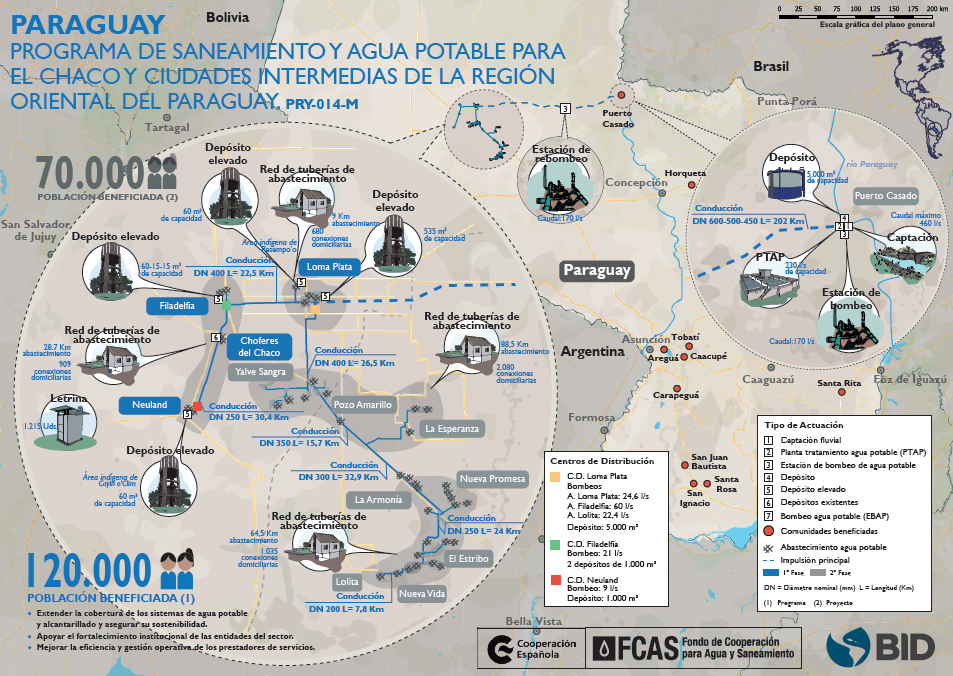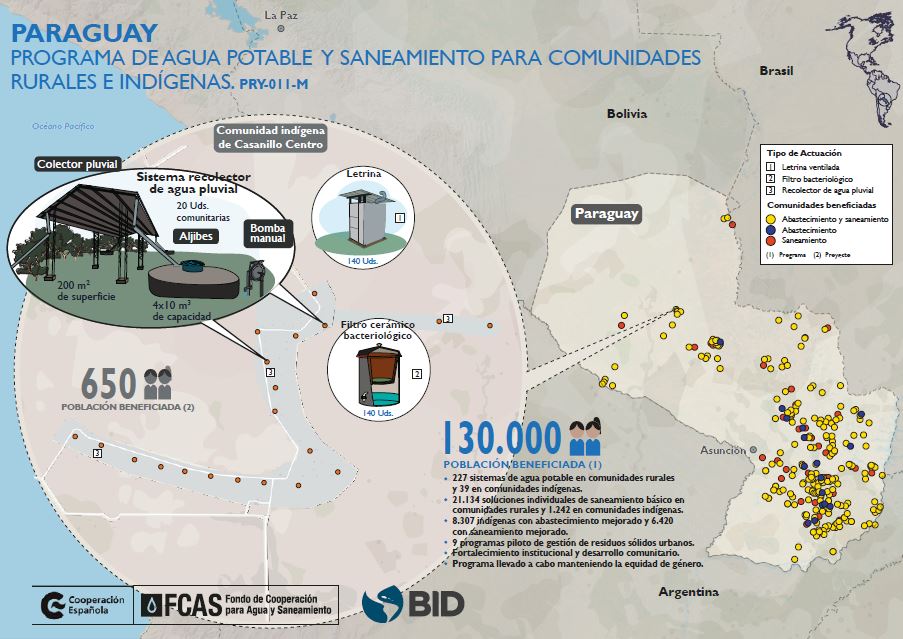In Paraguay, where the indigenous population, which represents 1.7%, is the most deprived segment of the country’s population, the Fund’s programmes in recent years have promoted a process of prior consultation in accordance with ILO Convention 169, which has benefited almost 30,000 people, and in another of the programmes financed, special attention has been paid to adapting management tools to the reality of the indigenous community.
The consultation process is not only an obligatory procedure to be complied with in the international framework, but also constitutes an excellent tool for participation in and ownership of the interventions, favouring their sustainability, as long as the process includes the characteristics of promoting prior, free, informed, accessible and flexible consultation in good faith.
PRY-014-M.- Sanitation and Drinking Water Programme for the Chaco and Intermediate Cities of the Eastern Region of Paraguay, implemented by the Ministry of Public Works and Communication.
The beneficiaries of the programme are indigenous communities belonging to seven ethnic groups, settled in 87 villages with a total of 25,952 inhabitants in the Central Chaco, who live under a chronic water deficit. The intervention was managed, as part of the multilateral portfolio, through the Inter-American Development Bank (IDB), and includes a process of free, prior and informed consultation and participation, in accordance with ILO Convention 169.
According to the MPWC’s “Consolidated report on the process of free, prior and informed consultation carried out in the indigenous communities, Aqueduct Project” of February 2020, the main agreements obtained were:
- Consent to initiate the process of free, prior and informed consultation.
- Consent to participate in the project.
- Scope of service provision (tariffs and performance).
- Consent to the project’s network design.
- Consent to start works and community commitments.
- Subcontracts for the operation and management of the service.
Social and Environmental Protocol.
PRY-011-M.- Drinking water and sanitation programme for rural and indigenous communities – PAYSRI, implemented by the National Environmental Sanitation Service (SENASA) of the Ministry of Public Health and Social Welfare.
Within the framework of the programme, investments have been made in infrastructure for access to drinking water and sanitation services for the 40 indigenous communities (around 3,200 people), with their legally constituted Sanitation Commissions and with final engineering designs for technically, environmentally, socio-economically and financially viable supply systems in 40 indigenous communities, and the implementation of the pilot programme for solid waste management.
For its development, one of the key management instruments of the programme, which contains the administrative provisions governing its implementation, was expressly adapted, giving rise to an Indigenous Operational Regulation (2010), which highlights the establishment of procedures for community development:
“The contracted consulting firm will be in charge of promoting the programme, in coordination with SENASA. It corresponds to the Socio-Cultural Component, and involves activities that contribute to establishing prior and informed consultation with the indigenous communities on each of the planned and viable solutions, as well as the processes that allow for organisational empowerment for the socio-cultural sustainability of the planned solutions.”



